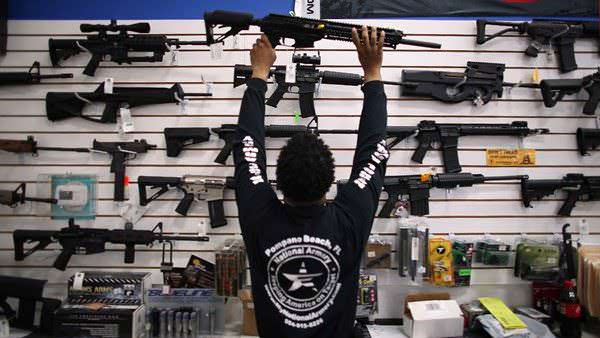
Five years ago, on March 8, 2018, Florida Governor Rick Scott signed into law Senate Bill 726. The law forbade residents of Florida 18-20 years old from purchasing firearms from federally licensed dealers. On the same day, the NRA sued the state of Florida (in the office of Attorney General, then Rick Swearingen), claiming the law was unconstitutional under the Second Amendment. On June 21, 2021, the District Court Judge ordered summary judgement against the NRA and for the State of Florida, finding the purchase ban on long guns against residents 18-20 years old did not violate the Second Amendment.
The NRA appealed the case to the Eleventh Circuit Court of Appeals in July 2021. About two years later, on June 22, 2023, the United States Supreme Court issued its opinion in the famous Bruen case, reaffirming the Heller decision and giving a clear procedure for courts to follow to determine if a law was unconstitutional because it violated the rights protected by the Second Amendment.
The Bruen case undermined the reasoning in the District Court decision to claim the Florida ban on sales to 18-20-year-olds was Constitutional.
On March 9th, 2023, five years after the Florida legislation was signed, a three-judge panel of the Eleventh Circuit issued an opinion against the NRA and upheld the District Court.
The opinion of the three-judge panel appears to be poorly reasoned. The first thing mentioned in the opinion is not a reference to the law, but the logical fallacy of an appeal to emotion, listing tragedies that happened long after the ratification of the Second Amendment and several years after the ratification of the Fourteenth Amendment.
The timing of the incidents is no accident, as the opinion makes a claim opposite of what Bruen demands. From the opinion:
A.Historical sources from the Reconstruction Era are more probative of the Second Amendment’s scope than those from the Founding Era.
Bruen holds that historical sources from the founding era are more important than sources after the ratification of the Fourteenth Amendment.
The Supreme Court has made clear the rights protected by the Second Amendment are the same under the Federal government as under the state governments. In 1791, when the Second Amendment was ratified, there were no federal or state laws prohibiting 18-20-year-olds from purchasing firearms. In 1792, the first congress passed the militia act, requiring members of the militia, who included 18-20-year-olds, to acquire firearms for militia duty. Obviously, to acquire them, they had to get them from some source. The most common way would be to buy them.
The Supreme Court, in Bruen, made clear: Once the clear text of the Second Amendment is implicated, the burden falls on the government to prove there were widespread and accepted statutory restraints in history which are very similar to the restraints the government is defending.
No such historical analogies or precedents exist in the ban of purchases by 18-20-year-old residents of states.
Just hours after the decision of the three-judge panel was published, an order was issued in the case, withholding the issuance of the mandate.
This means a judge on the Eleventh Circuit Court of Appeals is calling for a poll of the judges on the Eleventh Circuit to see if they are willing to accept the decision of the three-judge panel. This is not a common tactic, but has become much more common for Second Amendment cases.
If a majority of the judges (it appears there are 12 active judges in the Eleventh Circuit) votes to hear the case en banc, it will be heard en banc. The three judge panel already made their decision. Seven votes are needed to hear the case en banc.
We should know in a few months if the case will be heard en banc. If it is not heard en banc, it is highly likely to be appealed to the Supreme Court, which may or may not decide to hear the case.
If Florida passes a statute, now being debated, which restores the right of 18-20 year old residents to purchase firearms from federal dealers, the case would likely be rendered moot, and no further procedures would be necessary.
About Dean Weingarten:
Dean Weingarten has been a peace officer, a military officer, was on the University of Wisconsin Pistol Team for four years, and was first certified to teach firearms safety in 1973. He taught the Arizona concealed carry course for fifteen years until the goal of Constitutional Carry was attained. He has degrees in meteorology and mining engineering, and retired from the Department of Defense after a 30 year career in Army Research, Development, Testing, and Evaluation.

